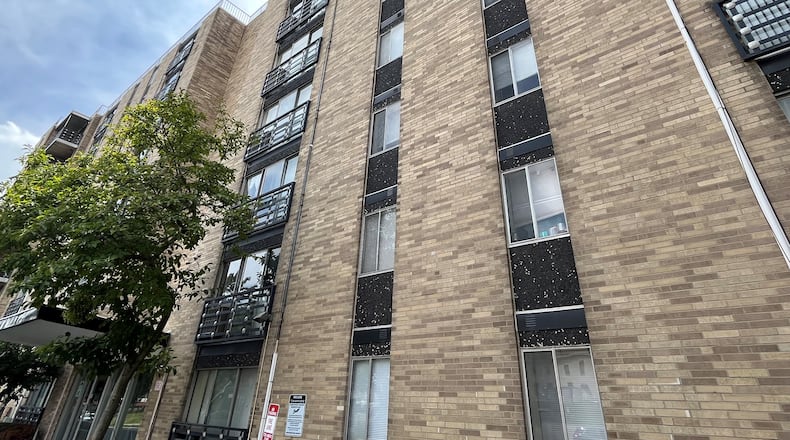Partners on the project say they hope it will help vulnerable families remain in their homes and achieve better outcomes.
Supporters say jurisdictions with right-to counsel programs often save more money in reduced social services costs than they spend on providing the legal assistance. If the program is successful, supporters hope to expand it across the city or Montgomery County.
“The hope is this data will show us the savings and the benefit of scaling throughout the entire city and hopefully the county,” said Erica Fields, senior director of strategic initiatives with Learn to Earn, which is a partner on the project.
Eviction cases
Last year, more than 3,100 eviction cases were filed in Dayton Municipal Court.
About half of those filings were associated with residential properties in the 45405 and 45406 ZIP codes, which cover large parts of northwest Dayton.
About 97% of tenants in eviction cases in Dayton Municipal Court are self-represented, according to court data shared during a Dayton City Commission work session last month.
In contrast, only about one in 10 landlords and property owners in local eviction cases are self-represented. The vast majority have private lawyers.
A new Access to Counsel pilot program will provide free legal representation to about 125 eligible tenants facing eviction in northwest Dayton, with priority given to Black and Latino renters with kids.
The program, using about $515,000 in funding, will pay for a full-time staff attorney with Advocates for Basic Legal Equality Inc. (ABLE) to represent tenants. It also will help cover the cost of services and support from a part-time social worker, a paralegal and an administrative assistant.
Legal counsel helps tenants in eviction cases obtain more favorable outcomes, which could include negotiating a move-out or a repayment plan, said Debra Lavey, senior attorney with ABLE.
She said the main goal is to keep people in their homes when possible. She said providing tenants with legal counsel should help prevent homelessness and increase housing stability.
Housing stability is tied to chronic absenteeism and impacts student success, said Fields, with Learn to Earn.
“We all know chronic absenteeism affects students’ ability to learn, their graduation rates and their preparedness for college and career planning,” she said.
About six states, 17 cities and a couple of counties across the nation have right-to-counsel programs.
Learn to Earn said that every dollar invested in a right-to-counsel program in Baltimore provided savings in excess of $6 for the city and the state of Maryland.
Research suggests that right-to-counsel programs in Cleveland, Detroit and Connecticut saved more money than they cost to operate.
In Cleveland, nine in 10 clients avoided an eviction judgment or an involuntary move, according to the National Coalition for a Civil Right to Counsel.
The local pilot program will try to determine both the financial and community benefits of providing tenants with legal representation and preventing evictions.
The local program launches Nov. 12. Funding and support comes from Blue Meridian Partners, the Dayton Legal Heritage Foundation of the Dayton Foundation and the Wright-Patt Credit Union Sunshine Fund.
Partners on the pilot project include Stout, ABLE, Dayton Tenants Union, Omega CDC Learn to Earn Dayton and others.
In addition to this program, the city of Dayton and Dayton Municipal Court have taken a variety of recent steps to try to reduce the impact of evictions and number of filings.
The court now allows eligible tenants to seal their eviction records, while the city has approved source of income protections, caps on late fees for rent payments and “pay-to-stay” policies that are meant to help renters.
Eligibility
Tenants facing eviction after Nov. 12 in northwest Dayton (zip codes 45405 and 45406) with a household income below 200% of the Federal Poverty Level, pregnant or have children living in the home are eligible. They can apply directly or through a referral agency for ABLE’s services through the Legal Aid Line intake line at 1-888-534-1432 or www.legalaidline.org; or visit ABLE’s Dayton office at 130 West Second Street, Ste. 700, Dayton, Ohio 45402.
About the Author



